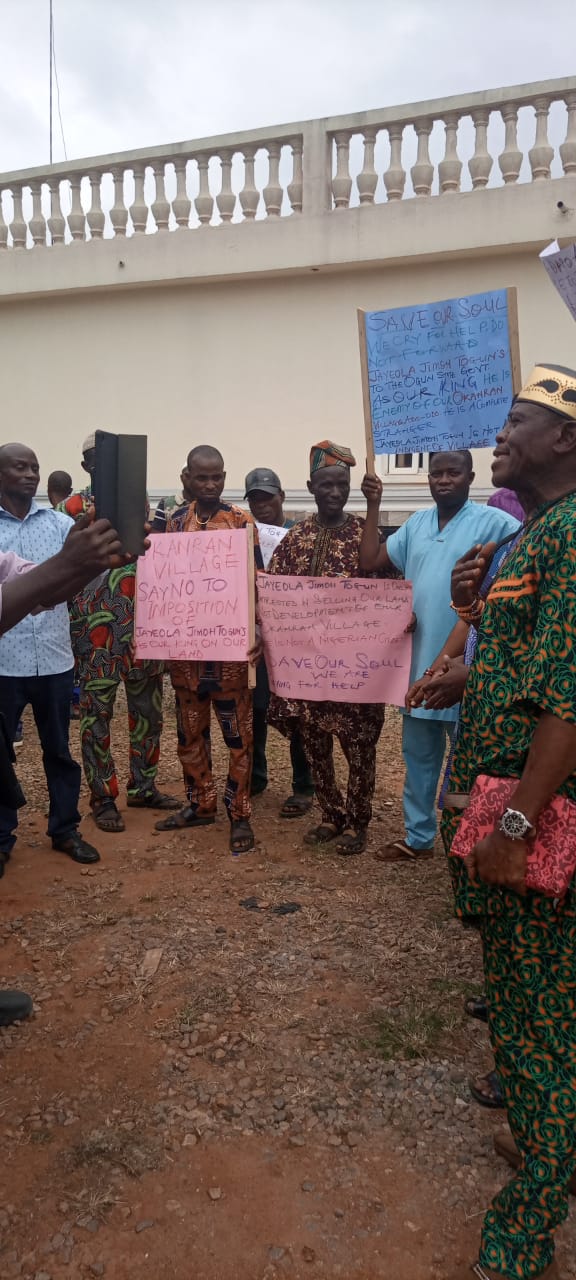In a bold move aimed at promoting sustainable education and easing the financial burden on families, the Anambra State Government has introduced a ban on the practice of writing assignments inside textbooks. The announcement, made by the State Commissioner for Education, Prof. Ngozi Chuma-Udeh, came during a capacity-building workshop held on Thursday, August 28, 2025, at St. John of God Secondary School in Awka. The workshop, organized by the Ministry of Education, was attended by private school proprietors and teachers, who were informed of the new directive and urged to ensure its strict implementation. This policy, described as a strategic effort to make textbooks reusable and reduce waste, marks a significant shift in the state’s educational practices and reflects the government’s broader commitment to quality, affordability, and sustainability in education.
The decision to prohibit writing in textbooks addresses a long-standing practice in Nigerian schools, where students commonly use textbooks as workbooks for assignments, notes, and exercises. While this practice may seem practical in the short term, it renders textbooks unusable for future students, including younger siblings or peers who might otherwise benefit from shared resources. By enforcing this ban, the Anambra State Government aims to promote a culture of resource conservation, reduce the financial strain on parents, and ensure that educational materials remain accessible and reusable across generations of learners. This article explores the details of the new policy, its implications for stakeholders, the context of education in Anambra State, and the broader significance of this initiative in the Nigerian educational landscape.
The Announcement and Its Context
The announcement was made on the third day of a capacity-building workshop organized by the Anambra State Ministry of Education. The event, held at St. John of God Secondary School in Awka, brought together private school proprietors, administrators, and teachers to discuss strategies for improving educational standards in the state. Prof. Ngozi Chuma-Udeh, the Commissioner for Education, used the platform to outline the government’s vision for a more sustainable and cost-effective education system. The ban on writing in textbooks was presented as a key component of this vision, aimed at addressing both environmental and economic concerns.
During her address, Prof. Chuma-Udeh emphasized the wasteful nature of the current practice, noting that writing in textbooks often renders them unusable after a single academic session. This, she argued, places an unnecessary financial burden on families, who must purchase new textbooks for each child, even when older siblings have already completed the same class. By prohibiting this practice, the government seeks to ensure that textbooks remain in good condition, allowing them to be passed down to younger siblings or other students progressing to the next class. This approach not only promotes resource conservation but also aligns with the state’s broader goal of making education more affordable for families.
The commissioner’s remarks underscored the government’s commitment to enforcing the new policy. She issued a stern warning to schools, teachers, and parents, stating that non-compliance would not be tolerated. To ensure adherence, Prof. Chuma-Udeh encouraged stakeholders to report any instances of defaulters to the Ministry of Education, signaling that the government intends to monitor the implementation closely. The directive applies to both public and private schools across Anambra State, reflecting the government’s determination to create a unified standard for educational practices.
The Rationale Behind the Ban
The decision to ban writing in textbooks is rooted in both practical and philosophical considerations. At its core, the policy addresses the issue of resource wastage, a significant concern in a country where many families struggle to afford basic educational materials. Textbooks are a critical component of the learning process, providing students with structured content and exercises that support classroom instruction. However, when students write directly in these books, they become personalized and often unusable for others, leading to a cycle of continuous purchasing that strains household budgets.
In Nigeria, where economic challenges are widespread, the cost of educational materials can be a significant barrier to accessing quality education. For families with multiple children, the need to purchase new textbooks for each child can be particularly burdensome. Prof. Chuma-Udeh highlighted this issue during her address, noting that reusable textbooks could significantly reduce the financial pressure on parents. By preserving textbooks for use by younger siblings or other students, the policy aims to make education more inclusive and equitable, ensuring that financial constraints do not limit access to essential learning resources.
Beyond economic considerations, the ban also reflects a commitment to environmental sustainability. The production of textbooks requires significant resources, including paper, ink, and energy, and the frequent replacement of defaced books contributes to waste and environmental degradation. By promoting the reuse of textbooks, the Anambra State Government is taking a step toward reducing the ecological footprint of its education system. This aligns with global trends toward sustainable development, where governments and institutions are increasingly prioritizing practices that minimize waste and conserve resources.
The policy also has pedagogical implications. By encouraging students to use separate notebooks or worksheets for assignments, the government aims to foster better organizational habits and a greater appreciation for educational materials. Writing in separate notebooks allows students to keep their work organized and revisit it for revision, while preserving textbooks ensures that the core content remains intact for future reference. This approach could also encourage teachers to adopt more creative and flexible methods for assigning work, such as using digital platforms or reusable worksheets, further enhancing the learning experience.
Implementation and Enforcement
The success of the new policy will depend heavily on its implementation and enforcement. Prof. Chuma-Udeh’s call for strict adherence indicates that the government is serious about ensuring compliance across all schools in Anambra State. However, implementing such a policy in a diverse educational system, which includes both public and private institutions, presents significant challenges.
Private schools, which were the primary audience at the capacity-building workshop, play a crucial role in Anambra’s education sector. These institutions often cater to families who can afford higher fees and are expected to maintain high standards of education. However, they also vary widely in terms of resources, infrastructure, and administrative practices. Ensuring that private school proprietors and teachers comply with the ban will require clear communication, regular monitoring, and possibly incentives to encourage adherence.
Public schools, which serve a larger and often less privileged population, may face additional challenges. Many public schools in Nigeria struggle with limited funding, overcrowded classrooms, and a shortage of teaching materials. In such contexts, students may rely heavily on textbooks for both learning and practice, making the transition to separate notebooks or worksheets more difficult. The government will need to provide support, such as supplying affordable notebooks or creating guidelines for reusable assignments, to ensure that the policy is feasible for all schools.
To enforce the ban, the Ministry of Education has called on stakeholders—parents, teachers, and school administrators—to act as watchdogs and report non-compliance. This participatory approach leverages the community’s role in holding schools accountable, but it also raises questions about the mechanisms for reporting and the consequences for defaulters. Will schools face fines, warnings, or other penalties for failing to comply? How will the government ensure that reports of non-compliance are handled fairly and transparently? These are critical questions that the Ministry will need to address to build trust and ensure the policy’s success.
The Broader Context: Education in Anambra State
The ban on writing in textbooks is part of a broader set of reforms aimed at improving education in Anambra State. Under the leadership of Governor Charles Soludo, the state has prioritized education as a key driver of development, with investments in infrastructure, teacher training, and curriculum development. The capacity-building workshop where the announcement was made is one example of these efforts, providing private school stakeholders with opportunities to enhance their skills and align with the state’s educational goals.
Anambra has long been regarded as one of Nigeria’s leading states in education, with a strong tradition of academic excellence. The state is home to numerous high-performing schools and has produced many of Nigeria’s top scholars, professionals, and leaders. However, challenges such as inadequate funding, uneven access to resources, and outdated teaching practices persist. The ban on writing in textbooks reflects the government’s recognition that sustainable and cost-effective solutions are essential to maintaining and building on Anambra’s educational legacy.
The policy also aligns with the state’s focus on inclusivity and equity. By reducing the financial burden of purchasing new textbooks, the government aims to make education more accessible to low-income families, who often struggle to afford basic school supplies. This is particularly important in a state where education is highly valued, and parents make significant sacrifices to ensure their children have access to quality schooling.
Reactions and Potential Challenges
The announcement of the ban has sparked a range of reactions among stakeholders. For some, the policy is a welcome step toward reducing costs and promoting sustainability. Parents, in particular, are likely to appreciate the potential savings, as reusable textbooks could significantly reduce their annual expenses on school materials. Teachers who value environmental conservation may also support the initiative, seeing it as a way to instill responsible habits in students.
However, others may view the policy with skepticism or concern. Teachers accustomed to using textbooks for assignments may find it difficult to adapt to new methods, particularly in schools with limited resources. Students, too, may need time to adjust to using separate notebooks, especially if they have grown accustomed to writing directly in their textbooks. Private school proprietors, who often operate on tight budgets, may worry about the cost of providing additional materials like notebooks or worksheets to comply with the policy.
Another potential challenge is the cultural shift required to change entrenched practices. Writing in textbooks has been a common practice in Nigerian schools for decades, and altering this behavior will require sustained effort and awareness campaigns. The government will need to engage with parents, students, and teachers to explain the benefits of the policy and provide practical guidance on how to implement it effectively.
The Broader Implications for Nigerian Education
The Anambra State Government’s ban on writing in textbooks has implications beyond the state’s borders. As one of Nigeria’s leading states in education, Anambra often sets trends that other states emulate. If the policy proves successful, it could inspire similar initiatives across the country, contributing to a more sustainable and equitable education system nationwide.
Nigeria’s education sector faces significant challenges, including inadequate funding, a shortage of qualified teachers, and disparities in access to quality education. Policies like the textbook ban, which address both economic and environmental concerns, could help alleviate some of these issues. By reducing the cost of educational materials and promoting resource conservation, states can free up resources for other critical areas, such as teacher training, infrastructure development, and digital learning initiatives.
The policy also highlights the importance of innovation in education. As Nigeria seeks to modernize its education system and prepare students for a rapidly changing world, creative solutions like the textbook ban can play a crucial role. By encouraging schools to adopt sustainable practices, the government is fostering a mindset of responsibility and forward-thinking that could benefit students and society in the long term.
Looking Ahead: The Path to Sustainable Education
The ban on writing in textbooks is a bold and forward-thinking initiative, but its success will depend on effective implementation and stakeholder buy-in. The Anambra State Government has taken a proactive step by announcing the policy at a capacity-building workshop, signaling its commitment to engaging with educators and administrators. Moving forward, the Ministry of Education will need to provide clear guidelines, support materials, and monitoring mechanisms to ensure that schools can comply without undue burden.
For parents, the policy offers hope of reduced expenses and a more equitable education system. For students, it presents an opportunity to develop better organizational habits and a greater appreciation for shared resources. For teachers and school administrators, it is a call to innovate and adapt, finding new ways to deliver quality education while adhering to the government’s directive.
As Anambra State embarks on this journey, the eyes of Nigeria’s education community will be watching. If successful, the ban on writing in textbooks could become a model for other states, demonstrating that small, practical changes can have a big impact on affordability, sustainability, and quality in education. Prof. Ngozi Chuma-Udeh’s announcement on August 28, 2025, may well mark the beginning of a new chapter in Anambra’s quest to build a brighter, more inclusive future for its students.








